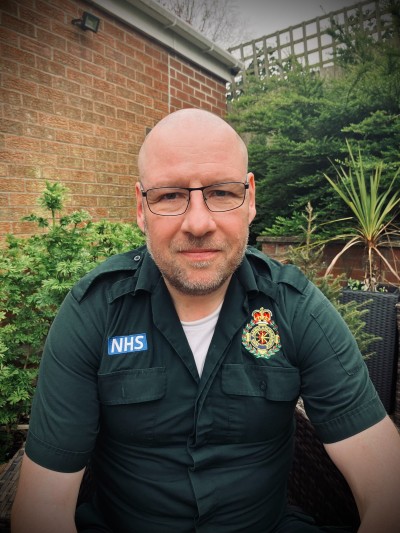Two new roles aimed at enhancing patient care and frontline services have now begun at North East Ambulance Service (NEAS).
The new clinical fellowship programme aims to support both clinical and non-clinical colleagues in developing their careers whilst progressing ideas that improve the care the service is able to provide the North East public.
The first two projects will look at collecting and interpreting data from the patient monitoring device used by ambulance crews to inform and improve cardiac arrest care as well as improving and standardising the equipment kept on ambulances and in emergency drug bags.

He said: “From becoming a student paramedic, I’ve always had an interest in cardiac arrest – ultimately, we do this job to keep people alive and as a profession I think it’s something we are very good at. As a clinical team leader that’s a big part of our role and since taking on this role my interest has grown even more.
“To be able to get more feedback from the equipment we use should mean we’re able to improve that care even more and improve survival rates. I’ll be looking at trends and developing a feedback mechanism for the team leaders, whether that’s a post-incident debrief, giving praise where it’s due or providing some constructive feedback.
“Given I will be the one providing that feedback, it’s great to be able to have the ability to design that process.”
James McCormack is hoping to utilise the experience gained on the road as an ambulance support practitioner.

“I’m excited to be working on this project and bringing the knowledge and skills I gain throughout the secondment back into my work going forward.”
Andrew Hodge, director of paramedicine at NEAS, said: “Clinical fellowships provide an opportunity for someone to step outside of their everyday work and develop their practice within the four pillars of clinical practice, usually through an externally funded programme.
“As part of our offer, we wanted to develop a reliable and consistent in-house annual fellowship programme.
“For me, progression isn’t just about moving through the clinical bands of our service – it’s about having the opportunities to develop in areas you are interested in and passionate about. With that in mind, it was important to me that we offer these opportunities to both registered and non-registered colleagues.
“For the first year, we had set ideas for the fellowship projects but for future years I hope people will be coming to us with their own ideas for areas of improvement and are then able to translate that passion into something that improves patient care.
“It’s really exciting for me to see Russell and James start their new roles and I look forward to seeing what the next year brings.”

